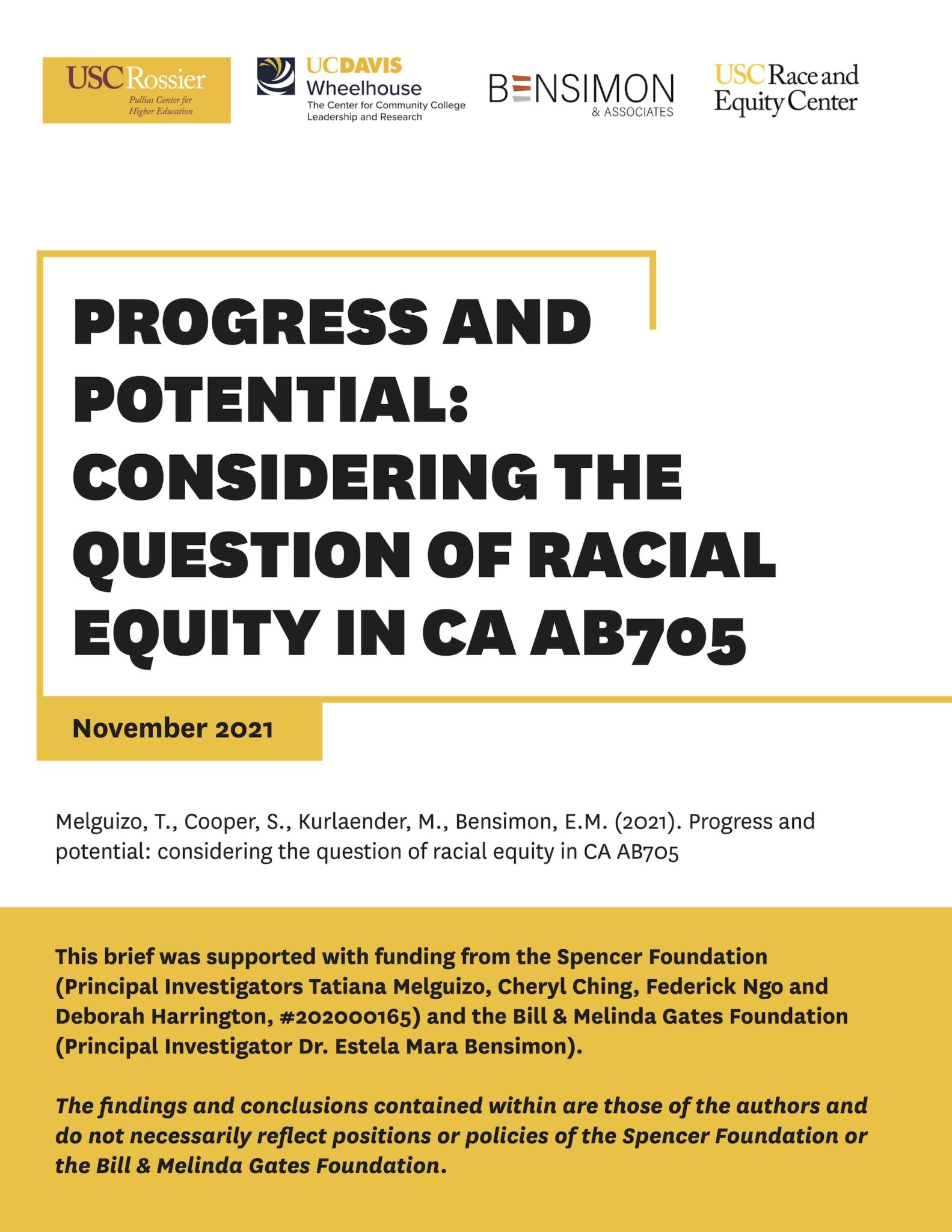Progress and Potential: Considering the Question of Racial Equity in CA AB705

California’s movement toward ending remedial education in community colleges through Assembly Bill 705 employs the power of policy as a means for racial justice. It is amply documented that Black, Latinx, and Indigenous students have for many years been disproportionately placed in remedial English and Mathematics courses. For generations of racially minoritized students, remedial non-college credit courses have blocked their ability to earn college degrees that would have provided access to well-paying jobs. Just as red-lining policies prevented Blacks from accumulating wealth through home ownership, placement in remedial education denied thousands of Black, Latinx, Indigenous, Asian Americans, and Pacific Islanders and their descendants the economic, health, and social benefits derived from higher education degrees.
This brief is motivated by our optimism that AB 705 can repair the harms done by more than 50 years of consigning racially minoritized students to remedial education courses—non-credit courses that have contributed to the very high rates of withdrawal that have characterized enrollment patterns in community colleges for too long.







